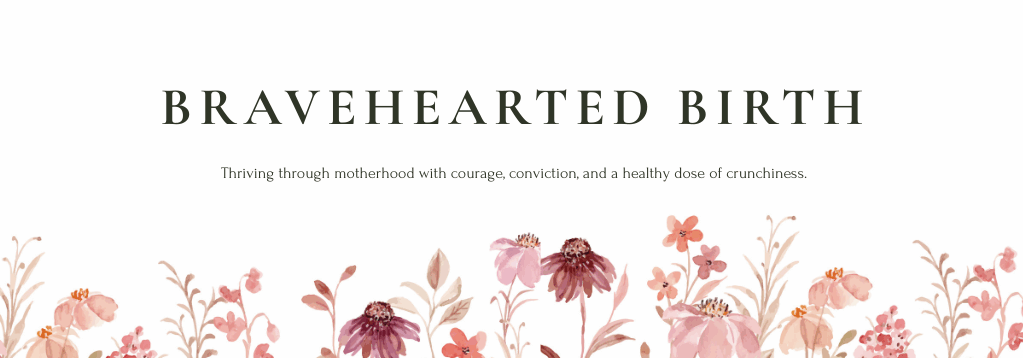Welcome back to the second post in my “Using Essential Oils for Babies” series. You can catch up on my first post here if you haven’t read it yet.
In my first post, I explained why I’m very hesitant to use essential oils on my baby. However, I do know many great moms who do. Many essential oils are considered safe for babies over three months. Let’s talk about them.

Disclaimer: I’m not a doctor, and I’m not qualified to give medical advice. I’m just here to read through physician’s research, and bring it to you in a concise, clear manner so that you can make an informed decision.
This article is going to be a little more technical. It’s all about the research. If you’re more interested in a concise, practical guide for parents, check out this article.
What I Looked For
I specifically looked for studies that showed a benefit of using essential oils for common childhood ailments. I found a lot of studies that had had neutral or negative conclusions (for example, this one concluded that essential oils are not superior to antibiotics). However, I didn’t include these studies. I wanted to find the studies that show how we, as moms, can easily use essential oils.
Most of these studies have been done with children, not infants. So we can’t apply all of these findings to babies.
American Research vs. Foreign Research
The American medical community is slow to embrace any type of medicine other than traditional Western medicine. Because of this mindset, much of the available essential oil research is from other countries. We have to be careful about these studies, because sometimes they aren’t held to the same standards as U.S. research practices.
However, because of the scarcity of American essential oil research, I chose to include a lot of studies from other countries.
What does the research say?
Studies have shown that essentials oils can help with a lot of common childhood ailments.
- Anxiety
- Pain control
- Colic
- Head lice
- Sleep disorders
- Improved cognition
- Respiratory illness
- Skin lesions
- Ear infections
Let’s dive in!

Anxiety
Ginger and lavender help slightly with anxiety. This study showed a slight (though not statistically significant) improvement in “distress” before and after surgery. Researchers diffused lavender and ginger prior to surgery.
This small Iranian study showed that aromatherapy helped decrease anxiety in children. The children in this study underwent dental work, and researchers found that diffusing orange oil helped them to be less anxious during the procedure.
This study compared the effects of lavender and patcholi oil in children at a dentist’s office. Both oils helped to alleviate anxiety, but lavender worked slightly better than patcholi.
Finally, this study showed that lemongrass also reduced anxiety in children.

Pain Control
One study showed that lavender oil aromatherapy helped with pain control in infants who received heel sticks (for labwork) in the hospital. However, the same study also concluded that babies also experienced significant pain control by smelling breastmilk.
This study showed that aromatherapy kept diabetic children’s heart rates closer to their normal baseline while they were checking their blood sugars. (A person’s heart rate normally goes up when they experience pain, so the researchers concluded that aromatherapy helped to decrease the child’s response to pain.)
In contrast, this study showed no difference in pain control in children when researchers provided aromatherapy during a stem cell transplant.
Finally, this study showed that children recovering from tonsillectomies required fewer doses of Tylenol for pain control when researchers provided lavender aromatherapy.

Colic
Lavender oil abdominal massage can help with colic. This study showed a lower rates of colic in infants who had regular lavender abdominal massages compared to infants who had no abdominal massages. However, abdominal massage is a well-established, effective treatment for colic. I’d be interested to read a study that compares lavender oil massage with no-lavender oil massage.

Head Lice
This study found that a mixture of lemon tea tree oil and eucalyptus oil was over twice as effective at killing head lice than a pyrethrin/piperonyl butoxide solution. (This solution is one of the common over-the-counter treatments for lice. It can have some pretty serious side effects.) However, eucalyptus oil toxicity can be really dangerous as well. It’s rare, but you’ll definitely want to research safe dosages before you use it.

Sleep Disorders
This small Iranian study found that children who inhaled damask rose essential oil resisted sleep less, woke up more easily in the morning, had fewer nightmares, and woke up fewer times during the night.
Another Iranian study found that children with leukemia slept better after orange oil aromatherapy.

Improved Cognition/Classroom Performance
This small study showed a marked improvement in classroom cognition and performance researchers diffused rosemary oil. Additionally, this study from Malaysia showed an improvement in classroom learning in children with autism after aromatherapy.

Respiratory Illness
This study indicated that kids were less likely to get colds and respiratory illnesses when they had inhaled a mixture of essential oils. Additionally, children with colds/respiratory illnesses recovered much more quickly when they were treated with aersolized essential oils.
Additionally, this case study discusses a 3-year-old patient who was hospitalized for RSV and was on oxygen in the hosptial. The parents requested that the staff nebulize essential oils (lavender, marjoram, balsam fir, and peppermint). The care team saw a dramatic improvement in the patient’s breathing and oxygen levels.

Skin Lesions
A mixture of iodine and Melaleuca oil can be a safe way to treat water warts, a common childhood skin infection, according to this study.

Ear Infections
This study from Africa concluded that clove oil is effective against ear infections.
Also, this 2005 study concludes that bergamot oil is effective against ear infections.

Summing It All Up
Okay, that was A LOT of information. Thanks for sticking with us that far. 🙂 What did you think? I’m excited to hear from you in the comments.
Until next time!
Lynette
